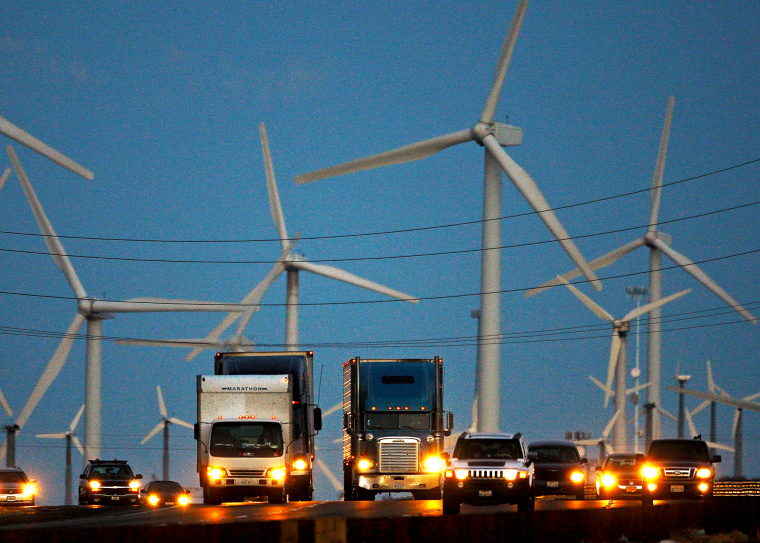Global greenhouse gas levels--which contribute to climate change--are rising, hitting a record high in 2012, according to a new study from the World Meteorological Organization. And the increase is accelerating, says the group.
“Carbon dioxide, mainly from fossil fuel-related emissions, accounted for 80% of this increase,” the organization said in a statement. “The atmospheric increase of CO2 from 2011 to 2012 was higher than its average growth rate over the past ten years.”
WMO Secretary General Michel Jarraud said at a press conference on Wednesday that the trend is worrisome. "Every passing year makes the situation somewhat more difficult to handle, it makes it more challenging to stay under this symbolic 2 degree global average,” he said, as quoted by Reuters.
The report comes as the Obama administration continues its focus on a more energy-efficient future for the US. A new state-by-state study published by the American Council for an Energy-Efficient Economy, with participation from the Department of Energy, ranked Massachusetts as the country’s most energy-efficient state.
The study, which assessed six key policy areas, reported that Massachusetts' continuing commitment to energy efficiency was a model for reducing energy waste.
"In every region we are seeing states embrace energy saving measures with growing enthusiasm," ACEEE Executive Director Steve Nadel said in a statement. He added that the progress made in 2013 on energy policies around the country shows that "state governments are proving that smart policy can still cross partisan divides."
This is the third year in a row Massachusetts has ranked No. 1 in ACEEE's study. Rounding out ACEEE's top 10 list are California, New York, Oregon, Connecticut, Rhode Island, Vermont, Washington, Maryland, and Illinois.
Energy Department Secretary Ernest Moniz applauded these states for working to make communities clean and sustainable while also saving taxpayer money. "Energy efficiency is a critical tool for cutting harmful carbon emissions and the best way to reduce energy bills for America's families."
ACEEE also ranked the least energy efficient states: North Dakota, Wyoming, South Dakota, Alaska, and Mississippi--though the organization added that Mississippi was showing signs of improvement from the previous year.
